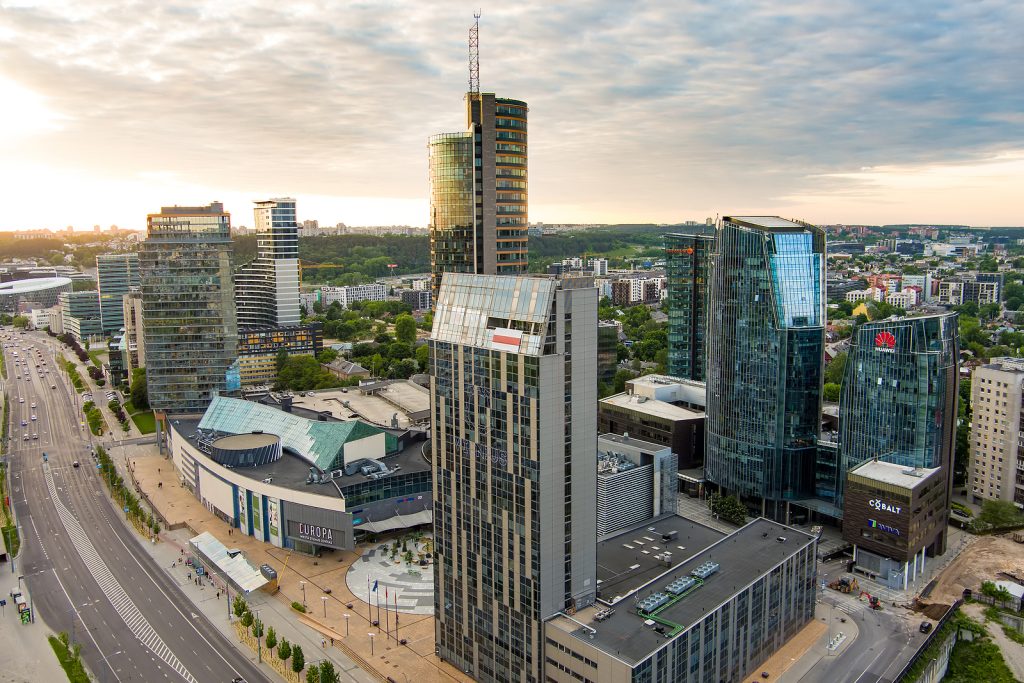Emerging Europe’s technology and innovation scene is thriving: new money and new ideas are coming onto the market all the time. To keep you up to date with the latest investments, innovations, events and accelerators, each week Emerging Europe brings you a round-up of the region’s tech, investment and start-up news.
Estonia’s Roofit.Solar raises 6.45 million euros
Tallinn-based Roofit.Solar last week raised 6.45 million euros in a funding round led by BayWa r.e. Energy Ventures and EdgeCap Partners.
In addition to ramping up the production capacity of its building integrated solar roofs, the company says that a portion of the round will be used to accelerate expansion plans beyond its home markets of Germany, Sweden, and Estonia.
Roofit.Solar designs and produces solar roofs that aim to blend design with cutting-edge solar tech. The fully building integrated (BIPV) solar roofs can withstand extreme weather conditions, offer a reduced total cost-of-build with 2-in-1 installation, and don’t compromise on style.
The roofs can also be installed on historical buildings, making solar possible for all buildings and removing any barriers to joining the solar movement.
Says Andres Anijalg, CEO and co-founder of Roofit.Solar: “With the backing of our strong investor base, we continue our mission: to offer homeowners elegant metal solar roofs as an alternative to traditional solar panels. Furthermore, we strive to be the go-to choice for the traditional roofing industry looking to transition to solar.”
Since being founded in 2016, the firm has raised a total of 17 million euros in various equity funding rounds and an additional two million euros in grant funding.
Lithuanian fintech sector remains buoyant

The fintech sector remains buoyant in Lithuania, defying a global investment downturn, according to a new review of performance in 2022.
The Fintech Landscape in Lithuania 2022-23 Report from Invest Lithuania notes an 80 per cent increase in the income generated from all licensed Lithuanian fintechs’ banking activities in the first half of 2022 over the same period in 2021, reaching 375 million euros. This was up 26 times on the first half of 2018, with the top ten highest-growth fintechs posting increases in revenue of more than 100 per cent.
The year also saw one of Lithuania’s biggest ever Series A rounds – kevin., which raised 61.6 million euros. In addition, the report reveals that 263 fintech companies are now domiciled in Lithuania employing 7,000 people – a 19 per cent increase over 2021.
Elijus Čivilis, general manager at Invest Lithuania, says: “While in 2022 global investment in fintech fell by almost a third, the Lithuanian fintech sector remained resilient. Put that together with an 80 per cent increase in aggregate banking revenues and you have a picture of robust health and solid fundamentals. One of the key strengths of Lithuanian fintech is the tight-knit and lively community, which is further nurtured by the Vilnius TechFusion initiative.”
Vilnius is the fastest growing city in CEE and the centre of the Lithuanian Fintech sector. Together with other tech industry sectors, the Vilnius TechFusion start-up ecosystem grew 16 times over the last five years, to a total enterprise value of eight billion euros.
The Lithuanian government and regulators have played an important role in creating and then supporting an environment for growth, according to the report.
Its proactive approach has made Lithuania the largest fintech hub in the EU by licences issued as well as one of the lowest risk jurisdictions globally. According to the Basel AML Index, Lithuania is the eighth most compliant country for protecting against money laundering and terrorist financing.
In addition, the Ministry of Finance is close to finalising its National Fintech Guidelines for 2023-2028, which will set the strategic direction for the sector’s growth for the next five years. The government has also dedicated 80 million euros for an extensive three-year National Upskilling and Reskilling Programme, which will help develop in-demand skills, including those related to fintech and IT.
Top photo: Roofit.Solar
Unlike many news and information platforms, Emerging Europe is free to read, and always will be. There is no paywall here. We are independent, not affiliated with nor representing any political party or business organisation. We want the very best for emerging Europe, nothing more, nothing less. Your support will help us continue to spread the word about this amazing region.
You can contribute here. Thank you.







Add Comment